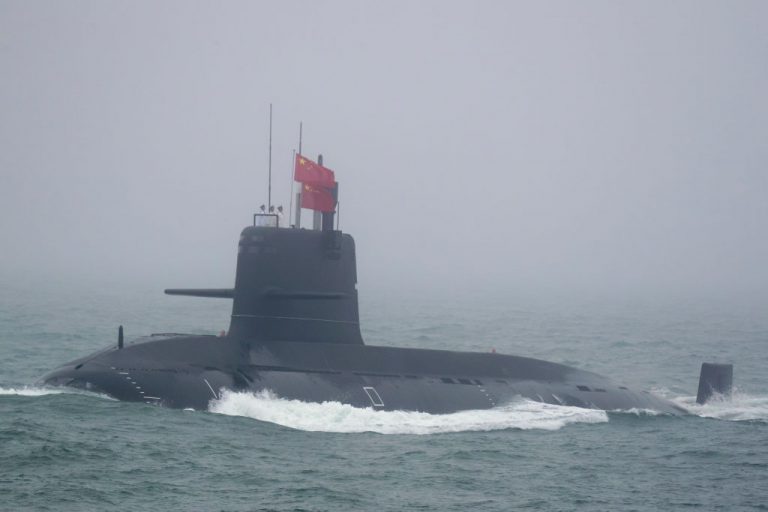Thailand’s plan to purchase its first attack submarine from China is now stalled after Germany refused to supply the top-end engine parts that the subs need, a Thai naval official confirmed
The official said the deal is now in limbo, and could strain Thailand’s military relations with China, which has replaced the United States as its largest arms supplier. In recent years, the Chinese regime has expanded its global influence by signing security deals with countries such as the Solomon Islands, and establishing its first foreign military base in Djibouti — a facility worth almost $600 million.
READ MORE:
- China Delivers Anti-Aircraft Missiles to Serbia in Covert Deal
- Following Confirmed Security Deal, Leaked File Reveals China Intended to Build Naval Base in the Solomon Islands
- China Eyeing First Atlantic Military Base in Africa
The Royal Thai Navy and the People’s Republic of China (PRC) state-owned China Shipbuilding & Offshore International Co., (CSOC,) signed the $402-million deal for the Yuan-class S26T submarine in 2017, with delivery originally expected by the end of next year.
In addition to this deal, the Thai government had also planned to procure two additional submarines from the PRC government, but was forced to suspend the plan in 2020 after facing criticism from the public, who think economic reconstruction should be given priority, Asia Nikkei reported.
“Do we need to buy a submarine without an engine?” Thai Prime Minister Prayuth Chan-ocha told reporters last week, indicating that his government would consider stopping the purchase if the original contract was not honored.
Germany cites EU embargo for export refusal
Success
You are now signed up for our newsletter
Success
Check your email to complete sign up
Rear Admiral Apichai Sompolgrunk, director general of the Thai navy’s acquisitions management office said the deal called for three MTU396 diesel engines from Germany’s Motor and Turbine Union company in order to run the submarine’s electric generator.
“Right now the process of building the submarine is stuck because the engine is not completed yet,” Sompolgrunk said.
However, Germany’s defense attaché to Thailand, Philipp Doert, confirmed his government’s decision to deny Beijing the engine parts in an open letter to The Bangkok Post on Feb. 8.
“The export was refused because of its use for a Chinese military/defense industry item,” he wrote. “China did not ask/coordinate with Germany before signing the Thai-China contract, offering German MTU engines as part of their product,” adding that the “export was not refused because of the product being sold to Thailand as a third country.”
Germany is bound by a European Union arms embargo imposed on China in 1989 following the Tiananmen Square massacre, when unarmed students and other protesters demanding greater political freedom were shot and killed by the communist regime’s People’s Liberation Army (PLA).
Contradicting statements
Despite the embargo, Germany and other countries in the EU have been supplying the PLA with engines and other equipment for decades, Jon Grevatt, a Bangkok-based analyst covering the Asia-Pacific region, told VOA news.
A spokesperson for MTU, a brand of Rolls-Royce Power Systems, confirmed that the company has supplied Chinese shipyards with engines but said they were “not considered dual use items,” and therefore not subject to a licensing requirement.
According to Sweden’s Stockholm International Peace Research Institute, which tracks the transfers of weapons and military parts around the world, MTU alone has fitted PLA destroyers and submarines with over 100 of its engines from 1993 through 2020.
Grevatt said they do this by passing off items with the potential for both military and civilian applications as so-called “dual-use items not explicitly excluded by the EU embargo,” and labeling them as commercial exports, even if they know the items will be ultimately used for military hardware.
China’s sale of the attack submarine for the Thai government, however, made this strategy harder to pull off. “If this submarine wasn’t being exported to Thailand, no one would know about it and therefore it would go ahead. But the fact that it is being exported, it’s in the news, is cause for the German government to say, oh, no, no, we’re not allowing that,” Grevatt said.
“You can’t deny that that system is a defense system.”

















